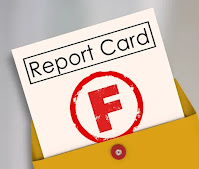“What are we doing to our children!” they screamed on social media and in person.
“You won’t muzzle me!”
Now that COVID has reached endemic status, it is easy to forget where we came from and how we got here. It’s easy to claim that all the restrictions caused untold harm while doing nothing to mitigate the effects of the virus. It’s easy to dismiss one million deaths in this country alone.
 |
| Our view on Burnt Lake in the BWCA. |
But what about the children?
My children weathered the storm of the pandemic just fine, thank you very much. Not because they are superhuman or more special than everyone else’s kids (they are, obviously), but because rather than focusing on what we couldn’t do we instead focused on the opportunities the pandemic and lockdown presented to us.
We ate a lot of meals together as a family without electronics.
Without the constant drain of summer sports travel fees, we had more money and did not feel the pinch of multiple $500-plus baseball tournament weekends.
We spent more time outdoors sitting around campfires and just talking.
Martin, Jack, and Logan all experienced a trip to the Boundary Waters Canoe Area and felt the effects of no cell coverage (along with the withdrawal symptoms of literally no contact with their social media “friends”).
We played catch in the backyard and went on motorcycle rides. We watched movies together. We sat down and talked about things and time slowed down for a while.
We did all of the things we often wished we could do if only we had the time.
Children are resilient and respond to whatever vibe we give off. If we focus on everything they are missing out on and lament all of the opportunities they lost, then that will be their frame of mind: that they have been cheated out of something irreplaceable.
If we adapt to changes and make the best out of a situation, our children will learn to do the same and become more resilient in a world where the only constant is change.
And I believe that is the best lesson we can teach them.
Note: This was written a couple years ago as we were returning to some normalcy following the COVID-19 pandemic. I simply never got around to publishing it.

